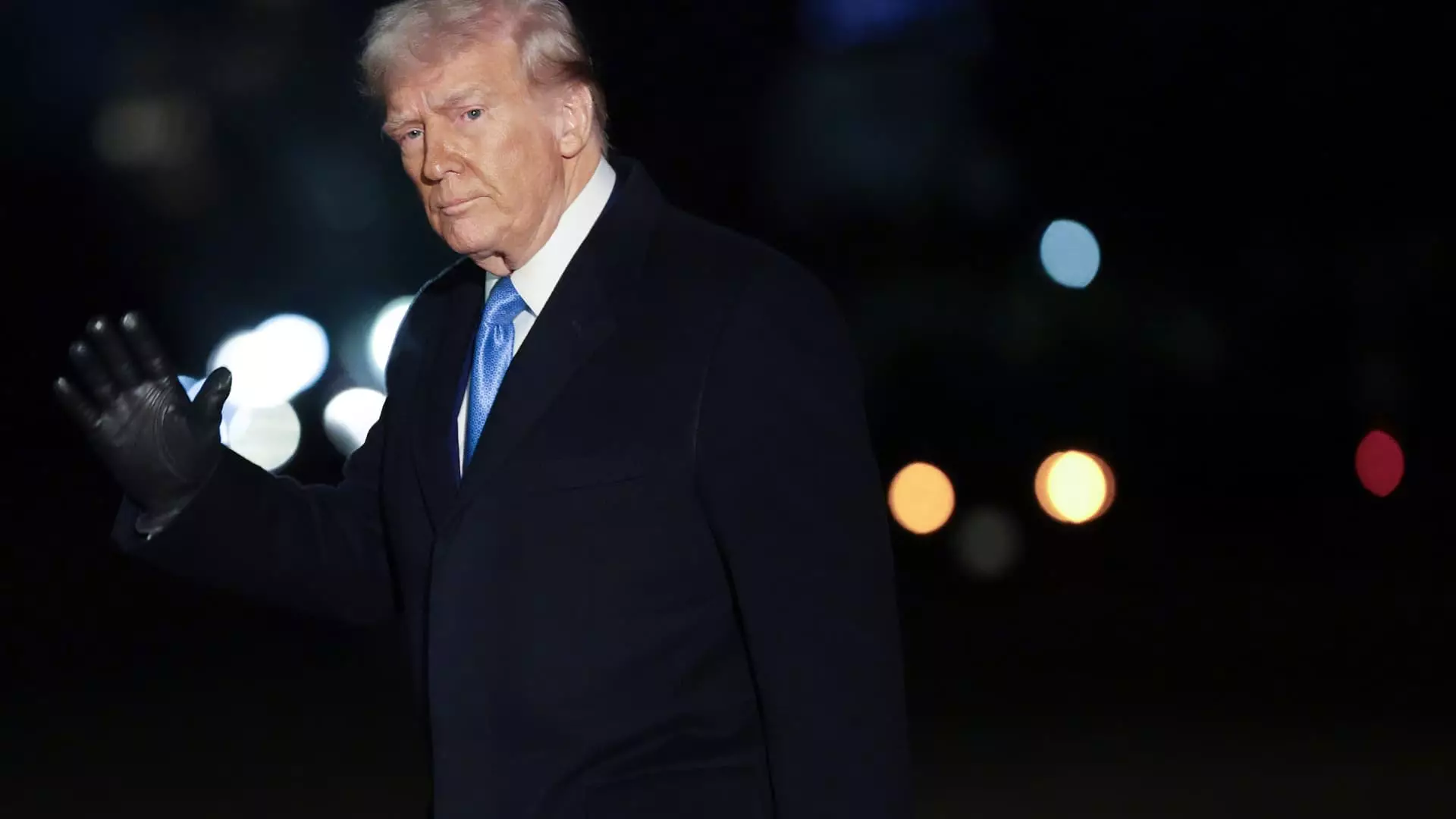In a significant ruling consummated on a Friday in Maryland, a federal judge issued a temporary injunction against President Donald Trump’s orders to restrict diversity, equity, and inclusion (DEI) programs across federal agencies and their contractors. U.S. District Judge Adam Abelson’s decision underscores not only the contentious nature of DEI initiatives but also raises important questions about free speech as enshrined in the First Amendment of the U.S. Constitution. By arguing that Trump’s directives likely contravene constitutional rights, Abelson’s ruling stands as a noteworthy development within the broader debate surrounding the role of DEI in society.
This decision came in response to a lawsuit filed by the city of Baltimore and several advocacy groups, which contended that Trump’s efforts violated protected speech and sought to chill open discourse on diversity-focused initiatives. The urgency of the case reflects ongoing tensions in American society about how to address historical inequalities and foster an inclusive environment, particularly in the light of recent social justice movements.
In his ruling, Abelson emphasized that the plaintiffs demonstrated a legitimate fear of potential repercussions stemming from Trump’s orders, which led to what he termed “a chilling of unquestionably protected speech.” This chilling effect encapsulates broader concerns shared by advocates of DEI, who argue that the initiatives serve a vital purpose in combating systemic discrimination and promoting equality. They contend that erasing these programs undermines decades of progress toward civil rights, particularly given that many marginalized groups are still fighting for equitable treatment and recognition.
Judge Abelson pointed out that the vague definitions utilized in Trump’s orders made it challenging for organizations to determine how they might be affected by the directives. The resultant ambiguity raises further questions about the legal grounds on which such orders were issued and the authority wielded by the executive branch in enforcing policy changes that affect numerous sectors.
The Context of DEI Policies
DEI policies gained significant traction following nationwide protests ignited by the tragic killings of unarmed Black individuals in 2020. These initiatives not only became prevalent in government but also found resonance in corporate America, as businesses recognized the importance of fostering an equitable workplace. As such, Trump’s orders to halt these initiatives were met with fierce resistance from civil rights groups, who viewed the move as a direct affront to the necessity for diversity and representation.
Trump’s broader criticisms of DEI stem from claims that such programs perpetuate discrimination under the guise of inclusion. Nonetheless, advocates argue that the need for DEI policies is rooted in a historical context where racial and gender disparities persist, affecting opportunities for women and people of color. They stress that failing to address these disparities only continues the cycle of inequality that pervades American society.
Responses and Potential Implications
The ruling swiftly garnered attention from various stakeholders, with Democracy Forward, a group representing the plaintiffs, applauding the decision as a necessary check against executive overreach. Skye Perryman, the organization’s president, articulated that Trump’s actions represent an unconstitutional infringement on free speech, stressing the importance of maintaining avenues for dialogue and discussion in society.
As the legal battle continues, the ramifications extend far beyond the specifics of the lawsuit. This ruling not only provides temporary relief for advocates of DEI but also invigorates debates regarding the intersection of government policy and personal freedoms. The outcomes of this case could potentially reshape approaches to diversity programs at the federal level, re-establishing the importance of inclusion as a core societal value.
While the immediate implications of Abelson’s decision are clear—a halt to the implementation of Trump’s orders on DEI—the broader landscape remains fraught with challenges. The ruling highlights how deeply divisive the issue of diversity initiatives has become within American politics. As the litigation unfolds, it will be essential to monitor both the responses from federal agencies and any potential shifts in public sentiment regarding DEI.
Further complicating the narrative is the fact that Trump’s administration had already begun eliminating DEI offices at federal agencies prior to the ruling. Therefore, the eventual resolution could have lasting effects on how diversity and inclusion are perceived across various sectors, both public and private. This case signifies an ongoing struggle not only for advocates of DEI but for all those who value the principles of equity and justice in a diverse society.

Leave a Reply